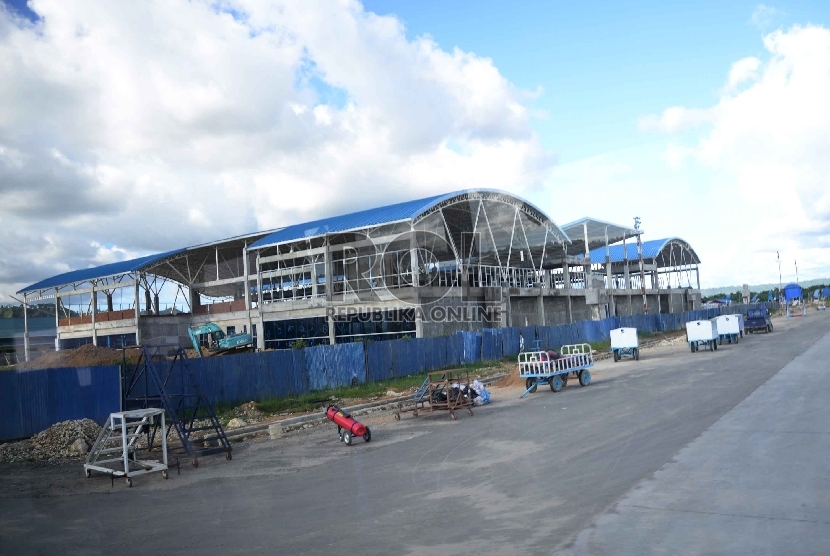By : Erlangga Pratama *)
REPUBLIKA.CO.ID, President Joko "Jokowi" Widodo's dual approach and inconsistent policies in Papua during his two-year administration have emerged as obstacles in his efforts to resolve the long-standing conflicts in Indonesia's easternmost region. Imparsial director Al-Araf has said and asserted while it was striving to restore Papua people’s trust in the government through various economic and infrastructure developments, the Jokowi administration had at the same time continued to use security approaches to solve problems in the region. Among the security approaches are the formation of Kodam XVIII/Kasuari, a new military command in West Papua's capital Manokwari, which had the potential to heighten military abuse in the area.
He questioned Jokowi’s belief that improving Papua could be done through economic and infrastructure development. This was because Papua’s main problems lay in the government’s inability to reach local people to fully address the alleged marginalization of the Papuans and past human rights abuse cases that remained unsolved.
Al-Araf statement about the recent condition in Papua must be criticized especially on his statement which said that Jokowi had dual approach and inconsistent policies in Papua.
I think Jokowi’s policy in Papua such as economic and infrastructure developments and at the same time continued to use security approaches to solve problems in Papua are a briliant and descent policy for Papua.
Economic and infrastructure developments in Papua are purpose to boost Papua’s development and to eradicate development gap between Papua and other provinces. Everlasting gap developments has been used by a separatist group and their supporters who come from various interest group in Indonesia and also coming from foreign interest group to downgrade Indonesia’s image.
A separatist group and their allies has been said that the integration Papua to Indonesia didn’t take advantages for Papua’s people, because human rights abuse has been done in Papua until nowdays.
Meanwhile, the policy using security approach must be done in Papua because a separatist group or a rebellion group in Papua did not want to surrender to Indonesia government. Defending the integration of all part in Indonesia is a Indonesia’s government rights to be done. Furthermore, the Papua integration to Indonesia is a legal movement and an international communities had been supported it.
Indeed, we must admit that human rights abuse might still happen in Papua but we know that President Jokowi has a plan to resolve all of human rights abuse in Papua through non-judicial process, never foreign intervere and its doesn’t implement in human rights abuse which solved earlier.
Al Araf statement about KPK must control the flow of Papua special authonomy funds is a smart one, because his statement is a true. I think the Corruption Eradication Commission (KPK) to control the flow of Papua special autonomy funds, as these were vulnerable to corruption by both central and local governments. Even in Papua has been rumors that Papua special autonomy funds has also used by a separatist group too.
Policy must be continued
The latest visit by President Joko “Jokowi” Widodo raises both hope and worry. Can he win over the hearts and minds of people in Papua and West Papua? He certainly is trying — by improving traditional markets, inaugurating power facilities and eliminating the wide price gap of fuel compared to other areas in the country.
Jokowi’s new “one fuel, one price” policy, however controversial and difficult, should serve as an example of the President’s commitment and his clear leadership in demanding that his policy is supported.
Although state-run oil company Pertamina will have to cough up subsidies estimated at an annual Rp 800 billion (US$61.53 million) to end soaring fuel prices in Papua, what’s important, Jokowi insisted, was justice for all Indonesians”.
Papuans would certainly hope that this presidential wish and clear understanding of their sense of injustice applied beyond their neglected needs of fuel and infrastructure. Justice for all includes an end to what Papuans say is general stigma toward them as either being separatists, incompetent or both. This underlying attitude, they say, leads to discrimination and suspicion against Papuans voicing any sign of dissent, which leads to dangerous accusations of treason.
Australia’s statements that an independent Papua is not in its best interest has boosted our confidence on the world stage although we must vigilance on Papua issues because its always be a sensitive issue which can be used by state-actor and non-state actor to intevere on Papua’s case especially on human rights abuse and other political demand such as a referendum for Papua, an inclusive dialogue between Indonesia-Papua and other crucial issues.
*) The writer is a Papua observer. Residing in Jakarta


